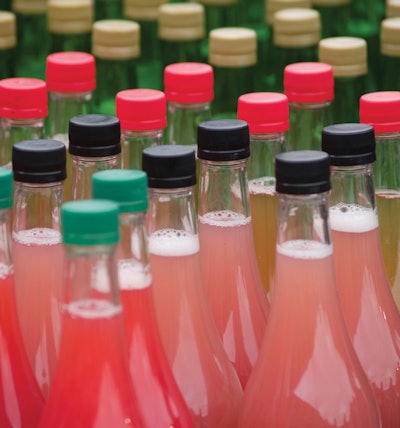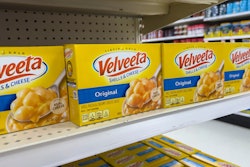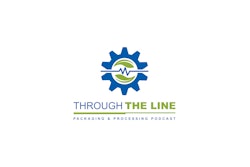Food and beverage companies have long relied on contract manufacturers and packagers to ensure that the quality and safety of products is true to their brands’ promise. Since 2008 when Walmart declared would require suppliers to be certified by a safety program accepted by the Global Food Safety Initiative, brands, private labelers and co-packers have been required by market realities to comply with accepted standards.
Those standards codify industry best practices, and include the U.S. based Safe Quality Foods Program (SQF), FSSC 22000, ISO 22000, BRC, NSF, AIB and IFS’s varied standards including the packaging-specific PacSecure.
Such standards have become especially important in light of the U.S. Food and Drug Administration’s Food Safety Modernization Act, provisions of which are being implemented with rolling deadlines stretching into 2016. The law gives broad new powers of oversight to the FDA, and emphasizes record-keeping and coordination of suppliers’ food safety practices up and down the supply chain.
A Web survey of food company packaging pros in the first quarter of 2014 provides a case in point: Respondents indicated that two-thirds of their facilities were either certified or in the process of being certified to a GFSI-accepted standard, and most had already completed the law’s seven key requirements as as summarized by GMA, the Grocery Manufacturers Association. (See chart, “Level of completion for major FSMA requirements.”)
Industry experts agree that companies already following industry standards will have little trouble with compliance. The law’s intent is to raise the bar on those food production operations which lag in their compliance with established industry best practices. And it doesn’t matter if the plant is owned by the brand or an external co-packer.
Does it matter who owns the plant?
“Whether a product is made internally or externally, the new FSMA rules should apply equally,” says Jeffrey T. Barach, PhD., principal of Barach Enterprises, Oakton, VA. Barach should know; he’s the consulting expert on FSMA for the Packaging Machinery Manufacturers Institute (PMMI), participant in the FDA-sponsored Food Safety Preventive Controls Alliance, and former vice president of science policy for the Grocery Manufacturers Association (GMA).
Food safety efforts are “pretty much the same across the board, whether we’re producing our own brands, private-labeling or co-packing,” says Gregory Hofe, director of production planning and contract manufacturing for Knouse Foods Co-op, Peach Glen, PA. The company, which is certified to SQF, produces its own brands of apple products—from juices to applesauce and pie fillings—and also supplements capacity with co-packing.
Likewise, Pete Grego,director of contract manufacturing at FSSC 22000-certified Nor-Cal Beverage Co., West Sacramento, CA, sees “little difference” in how food safety requirements are managed for its Go Girl Energy drink brand it produces and distributes, and the chilled juices, cold fill carbonated drinks and hot fill beverages it co-packs.
So what’s changed?
There are differences between standards, and in what companies must do under the FSMA. Beyond this business discussion, two resources that can be used to research the details include:
• FDA’s Food Safety Modernization Act (FSMA) homepage (pwgo.to/1206).
• Packaging World’s Food Safety Playbook (pwgo.to/1207).
Specifically for outsourcing partners, Barach says co-packers should pay “particular attention to the new regulations for environmental monitoring, if they are making ready-to-eat foods.” Toward this end, vigilant co-packers will proactively address risks in water, air, material storage, swab-testing of food contact surfaces and more, without need for customer prompting.
“Years ago, customers would ask us to do environmental testing for them, and we’d swab equipment, and so on, for lines particular to their products. Today, we have our own plant-wide environmental program in place at all our locations,” says Fred Hartzler president of Express Packaging, Newcomerstown, OH. “It puts us ahead of the game to have our own system, so everyone we work for doesn’t have to come in and define those requirements for us.”
Additionally, there may be extra pressure placed on audits. As retailers place demands on brands, brands, in turn, must verify co-packer compliance on a scheduled or as-needed basis, either using their own staff or a third party auditor. While research is far from conclusive, there may be cause to believe that audits may be on the rise under the new era of FSMA. (See chart, “Will FSMA spur more packaging supplier audits?”)
Accounting for audits
“We get audits from customers, regulatory agencies, third-party auditors, and our own internal quality staff,” says Knouse Foods’ Hofe. “We don’t mind; they force us to keep-up with the latest standards and regulations, and they make us a better operation.”
Audits also can be good for new business, adds Nor-Cal’s Grego: “If a prospective customer comes to visit, you can expect they’ll want to see our blending and batching area, our lab, our filling lines, our whole operation. A good brand can tell if a co-packer’s prepared.”
Up front, a company vetting a co-packer will need documentation and a first-hand view of the co-pack operation, because any “slip-up would be problematic either internal [or brand-owned] or external, and could lead to a product being held or recalled,” Barach says. “For an external co-packer, this could bump them off the ‘approved co-packers list.’” After that, audit frequency vary as widely as the products, level of food contact and type of packaging.
Is there such a thing as too many audits Is too many? It’s hard to say, or know for sure.
“We serve a lot of different customers, and each one does things a little differently,” says Todd Swift, executive director of packaging solutions for ARIPackaging, Alsip, IL. “Even though we all follow the same regulations and pretty much recognize the same standards—we’re SQF-certified—there are still little nuances that can trigger an audit.” He estimates that the company entertains customer audits roughly once a month, at times more frequently.
Certain types of products might carry specific risks, sensitivities, labeling requirements or even the perceptions in the media or marketplace that could trigger greater scrutiny. Allergen-free, gluten-free, non-GMO, organic, kosher/halal and other special categories could be subject to special considerations that are more likely to result in more or more record-keeping, more audits and/or more lengthy audits.
“Every customer has some demands that are greater in some area than in others,” says Nor-Cal’s Grego. “Right now, for instance, we’re doing pre-batch testing for things like caffeine levels in energy drinks [because] if you over-caffeinate, you’re in trouble.”
As with any manufacturing or business initiative, too many meetings and too much paperwork can be a drain on productivity, and the very product quality and safety such bureaucracy was intended to address can be compromised. That’s the thinking of some in the industry who have for years sought to reduce redundant food safety audits and curb wasted resources. Mark Overland, a Cargill leader in food safety, quality & regulatory affairs raised this issue as early as the 2007 F4SS Summer Meeting (pwgo.to/1208) in a presentation that estimated global food industry losses of $6.5 billion annually to redundancy in food safety auditing.
The food industry continues to ponder the issue, while individual companies find that compliance can be its own reward. At Express Packaging, Hartzler says “a lot of times, an audit that would have taken three days now takes as little as a day and a half because we’ve already done all the paperwork, and met all our compliance needs.”
The best course of action for brands and co-packers alike is to be certified to an appropriate standard, keep current with regulatory requirements and instill a culture of food safety in your plant and business operations.
This story appears courtesy of the CPA Connection E-Newsletter, found under the resources tab at www.contractpackaging.org.



















